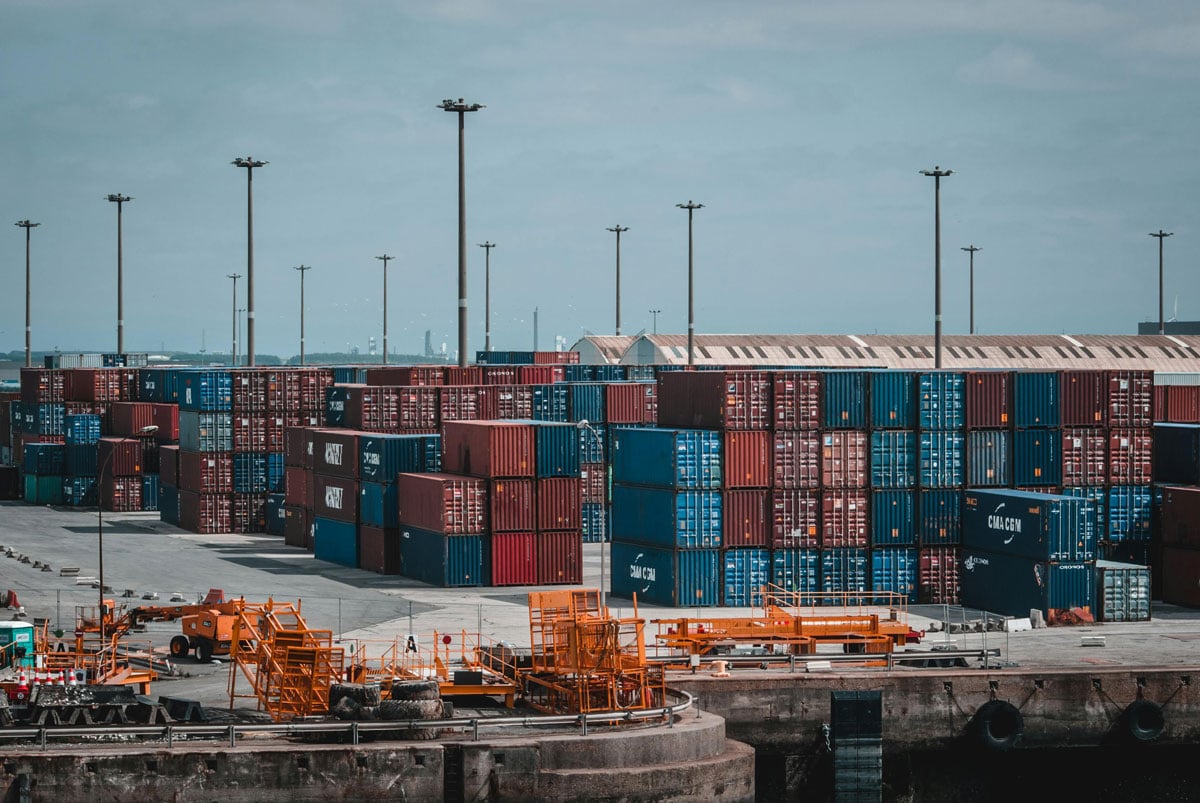
Cargo Claims Processing Made Simple: How to Resolve Freight Damage Disputes

Key Takeaways:
-
Prompt Reporting of Damage is Essential: Immediately documenting and reporting any freight damage upon delivery is crucial for initiating the claims process and preserving evidence.
-
Effective Claims Handling Involves Documentation and Assessment: Successful cargo claim resolution relies on thorough documentation of the damage, followed by a detailed evaluation to determine the extent and cause.
-
Efficient Dispute Resolution Requires Negotiation Based on Evidence: Fair and timely resolution of cargo claim disputes is best achieved through informed negotiation backed by clear and comprehensive evidence.
-
Understanding Different Claim Types Streamlines the Process: Recognizing the various types of cargo claims (damage, loss, etc.) allows for more focused and effective handling strategies.
-
Technology and Training Enhance Claims Management: Implementing technological solutions and ensuring proper team training are vital for improving the efficiency, accuracy, and overall effectiveness of cargo claims management.
Navigating the intricacies of cargo claims management can be a complex endeavor, particularly when faced with freight damage disputes. However, understanding the streamlined approach to cargo claims handling and adjustment can significantly ease this process.
This blog delves into how businesses can effectively manage and resolve these disputes through comprehensive cargo claims management.
Cargo Claims in the Logistics Industry
In the logistics industry, cargo claims are a critical component that ensures the protection and compensation for freight damage. Cargo claims management is essential, as it involves the evaluation and resolution of any claims related to damaged or lost cargo.
What is Cargo Claims Handling?
Cargo claims handling refers to the processes and methodologies employed by businesses to assess, manage, and resolve claims associated with cargo damage. This usually involves:
-
Assessment of the damage: Detailed evaluation of the cargo to determine the extent and cause of damage.
-
Documentation: Gathering necessary documentation to support the claim, such as bills of lading, photos of the damage, and delivery receipts.
-
Adjustment process: Modifying the claim as necessary based on the assessment and documentation to reach a fair conclusion.
The Process of Cargo Claims Handling
Initial Steps in Cargo Claims Adjustment
-
Report the damage: Immediately report any damage discovered upon delivery.
-
Collect evidence: Accumulate all relevant evidence, including photographs, delivery documents, and witness statements.
-
Notify the carrier: Inform the carrier in writing within the designated time frame set by carrier’s terms or regulations.
How to Resolve Disputes Efficiently
The goal of cargo claims adjustment is to ensure a fair and equitable resolution to freight damage disputes. Here's how the process typically unfolds:
-
Filing the claim: Submit a detailed claim to the cargo claims adjuster.
-
Evaluation: The adjuster reviews the claim based on the provided evidence and applicable laws and policies.
-
Negotiation: Both parties discuss potential settlements based on the adjuster’s findings.
Efficient handling of the entire process is crucial. It ensures that all parties are satisfied with the outcome, minimizing financial losses and fostering better business relationships.
Immediate Actions at the Time of Delivery
Taking immediate action upon delivery can significantly influence the effectiveness of the claims process. Here’s what should be prioritized:
-
Document thoroughly: Ensure all visible damage or signs of damage are recorded with detailed notes and photographs.
-
Report promptly: Contact the carrier immediately to report any discrepancies and initiate the freight claims process.
-
Record physical damage: Note any issues comprehensively to support any damage claims.
Prompt action ensures that all necessary details are captured accurately, setting a strong foundation for any potential claims.
The Different Types of Cargo Claims
Knowing the types of cargo claims can streamline the claims handling process and enhance dispute resolution:
-
Damage Claims: Address items damaged due to handling.
-
Loss Claims: Focus on items that are missing from the shipment.
-
Natural Disasters: Consider environmental factors that could cause damage or loss.
-
Improper Packaging: Claims where packaging inadequacy leads to damage.
Understanding these distinctions helps in crafting tailored strategies for handling claims, ultimately minimizing losses and disputes.
Assess Liability and Addressing Carrier Negligence
In instances of freight damage, determining carrier negligence is essential for resolving liability coverage issues:
-
Assessment of duty of care: Determine if the carrier met their obligations.
-
Documentation: Gather all relevant documents that support your damage claim.
-
Negotiations: Use well-documented evidence to negotiate liability terms.
Proper assessment and clear evidence are key to effectively resolving disputes over carrier liability and securing the right compensation.
Navigate the Settlement Process
Effective negotiation is crucial in the settlement process of cargo claims:
-
Review documentation: Gather and review all evidence before negotiations.
-
Base negotiations on solid evidence: Ensure all negotiations are backed by clear, documented evidence.
-
Agreement on settlement: Reach an agreement that reflects the true extent of the damage and the assessed liability.
A systematic approach to negotiation ensures that settlements are fair and reflective of the actual damages incurred, leading to satisfactory resolutions.
Best Practices for Robust Claims Handling Process
Enhancing the claims handling process involves strategic practices that improve efficiency and accuracy:
-
Training: Ensure your team is well-versed in assessing damages and documenting claims.
-
Systematic handling: Create protocols for each type of claim, especially for high-risk areas like the air cargo industry.
-
Communication: Maintain transparent and continuous communication throughout the claims process.
By implementing these best practices, companies can handle claims more effectively, reducing the potential for financial loss and strengthening client trust and satisfaction.
Technological Integration in Cargo Claims Management
Embracing technology is transforming the cargo claims management landscape, enhancing accuracy and speed:
-
Automated systems help in quickly documenting and reporting claims.
-
AI-driven tools analyze and predict common issues, enabling proactive measures.
-
Blockchain technology ensures the integrity and traceability of claims documentation.
Leveraging technology not only speeds up the process but also introduces a level of precision that traditional methods can't match, thereby reducing errors and disputes.
Regulatory Compliance and Its Impact on Claims Handling
Understanding and adhering to regulations is crucial in the freight claims process:
-
Stay updated on changes in transport and cargo handling regulations.
-
Ensure compliance with international laws if dealing with cross-border shipments.
-
Educate your team on regulatory impacts to avoid legal pitfalls.
Compliance with regulations prevents legal issues and enhances the reputation of your business, ensuring smooth operations and trust among clients.
Why is Effective Cargo Claims Management Crucial?
Effective cargo claims management ensures that disputes are resolved promptly and fairly, which helps maintain business efficiency and customer satisfaction. By implementing robust cargo claims handling and adjustment protocols, businesses can minimize losses and improve their operational resilience.
Partner with Veritas for Expert Cargo Claims Management
Ready to streamline your cargo claims process and enhance your logistics operations? Contact Veritas today to leverage our expertise in cargo claims management, where precision meets efficiency.
Our team is ready to help you minimize losses, handle claims expertly, and maintain compliance with all relevant regulations. Whether you need assistance with commercial truck claims Management or optimizing your freight management, we offer specialized services tailored to your needs. Contact us now to partner with a leader in both fields!

